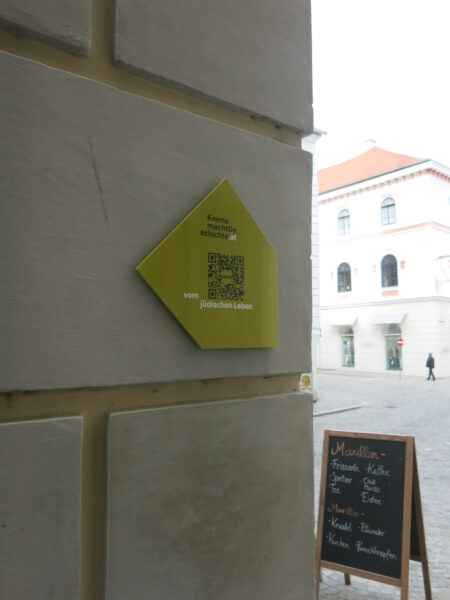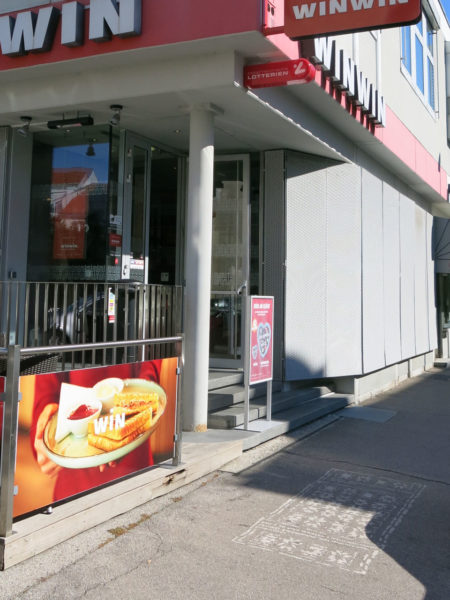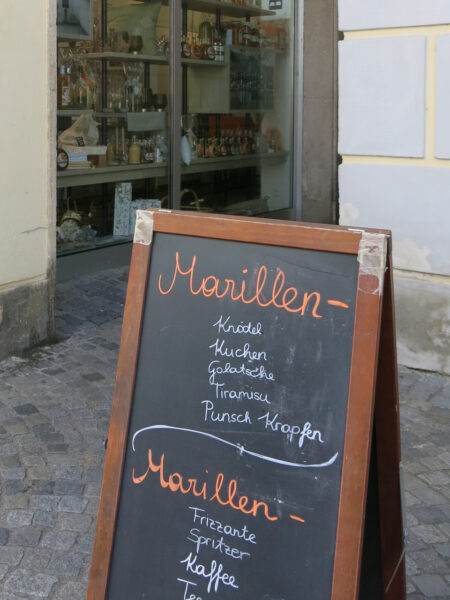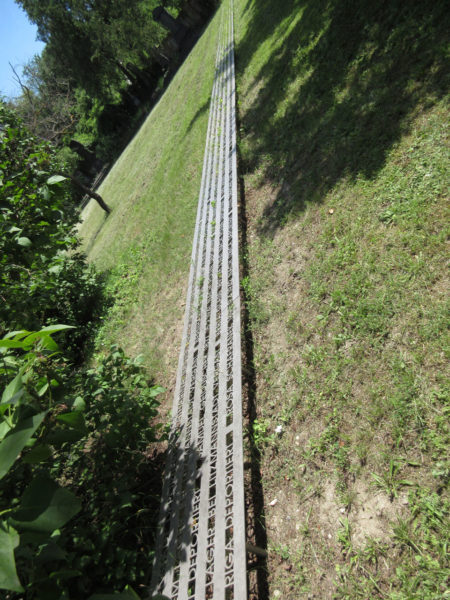After the expulsion of the Jewish people of Krems in the 15th and 17th centuries, the Jewish community only started growing back slowly in the 19th century. In 1894, after years of resistance from the Krems district council, a synagogue was built in Dinstlstraße.
By 1900 there were around 300 Jewish people in Krems. Many of the younger generation of Jewish Kremsers had close ties to Socialist and Communist movements, and as a result were subject to increased surveillance and persecution. In order to bring together a minyan – the ten adult men whose presence is required for a prayer service – the sons of the cantor Samuel Neubauer had to call one-by-one at the Jewish homes and personally invite the inhabitants. On one occasion his sons Bela and Siegfried, who were members of the socialist youth group Red Falcons, protested against this role in the temple by reading out the Communist Manifesto instead of the Torah.
The Zionist club in Eisentürhofgasse was a central space for Jewish life in the city. It was used as a venue for celebrating Purim, New Year’s Eve, birthdays, weddings and leaving parties for individual Krems families as well as for performing plays. In addition to the Neubauer family, another name that often appears in stories of Jewish life is Wolter – previously Wasservogel. The Wolter family invented the apricot liqueur that is now a Krems speciality. The shop at the Steiner Gate, which today sells apricot products, used to be the site of the Neuner underwear shop. This was one of the shops that was looted and destroyed in 1938. Several members of the Neuner family were deported and murdered in camps. Ernst Neuner, one of the shop-owner’s sons, sent food packets to friends and relatives in the Theresienstadt concentration camp between 1943 and 1945, despite the risk of being deported himself.
There has been no institutional Jewish life in Krems since the expulsion and murder of the Jewish people of Krems. Johann Kohn, now deceased, was the only Jewish person from Krems who returned from emigration to the city after the war. The last funerals to take place at the Jewish cemetery, where a total of 177 people have been buried since 1882, took place in 1971. The synagogue was demolished in 1978.




